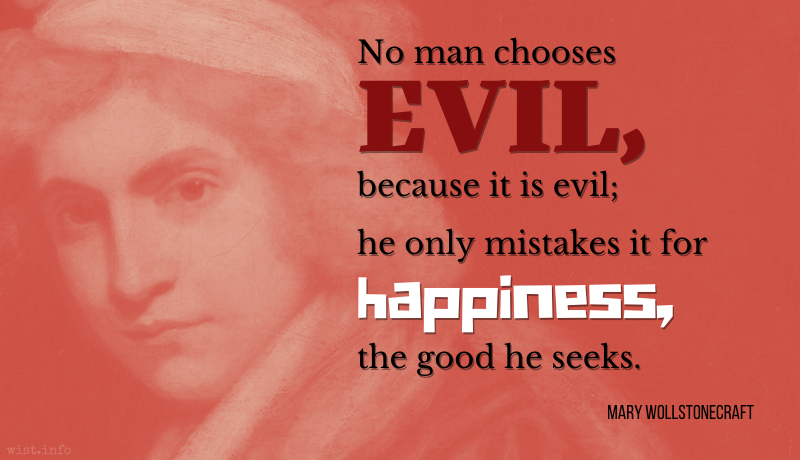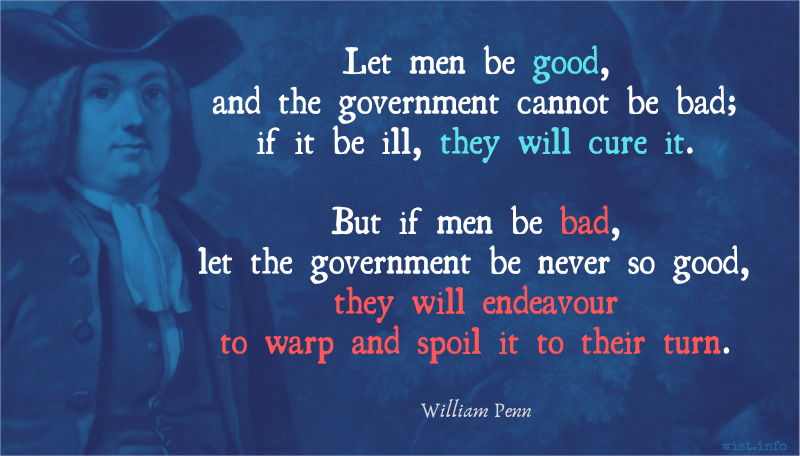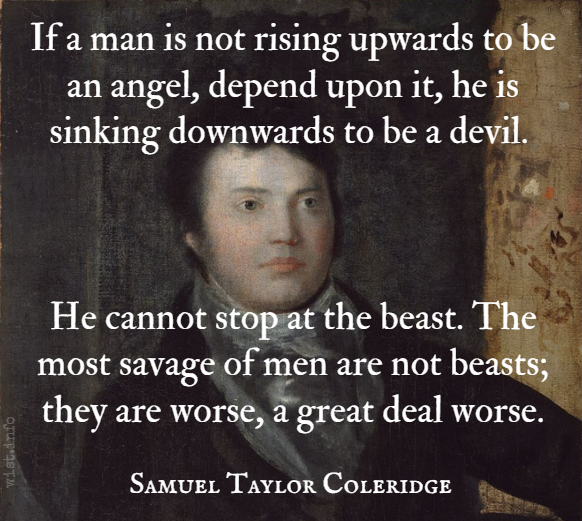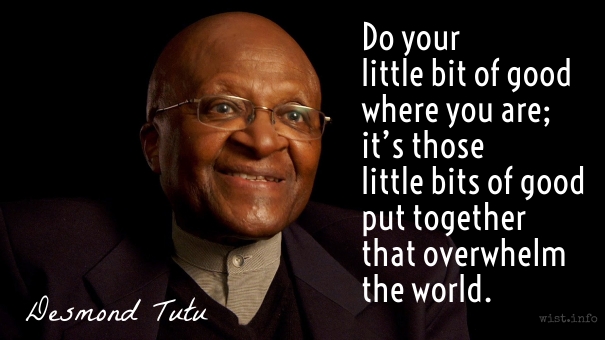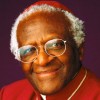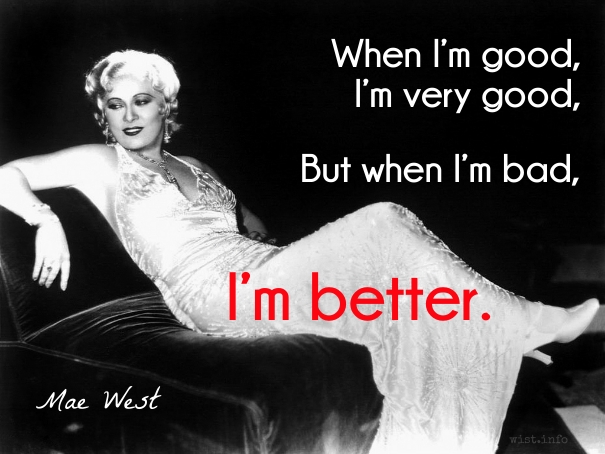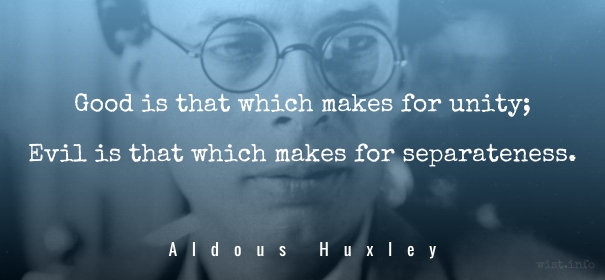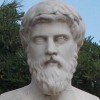Everyone has a confused notion of good,
On which he sets his mind, and which he desires;
And therefore everyone tries to attain it.[Ciascun confusamente un bene apprende
nel qual si queti l’animo, e disira;
per che di giugner lui ciascun contende.]Dante Alighieri (1265-1321) Italian poet
The Divine Comedy [Divina Commedia], Book 2 “Purgatorio,” Canto 17, l. 127ff (17.127-129) [Virgil] (1314) [tr. Sisson (1981)]
(Source)
(Source (Italian)). Alternate translations:
All follow good; but with uncertain aim.
At once it kindles, and it soothes their flame.
[tr. Boyd (1802), st. 32]
All indistinctly apprehend a bliss
On which the soul may rest, the hearts of all
Yearn after it, and to that wished bourn
All therefore strive to tend.
[tr. Cary (1814)]
A good each one confusedly apprehends
The mind to quiet -- satisfy desire;
Hence to attain 't will every one conspire.
[tr. Bannerman (1850)]
Each one confusedly a good conceives
Wherein the mind may rest, and longeth for it;
Therefore to overtake it each one strives.
[tr. Longfellow (1867)]
Each one confusedly apprehends a good wherein his mind may rest, and desires it ; wherefore each one strives to reach Him.
[tr. Butler (1885)]
Some good doth each confusedly apprehend.
In which to rest his spirit's longing fain,
Therefore to reach to it doth each contend.
[tr. Minchin (1885)]
Every one confusedly apprehends a good in which the mind may be at rest, and which it desires; wherefore every one strives to attain it.
[tr. Norton (1892)]
Each one apprehends vaguely a good wherein the mind may find rest, and desires it; wherefore each one strives to attain thereto.
[tr. Okey (1901)]
Everyone confusedly apprehends a good in which the mind may be at rest and desires it, so that each strives to reach it.
[tr. Sinclair (1939)]
Each one confusedly doth apprehend
A longed-for good, wherein the mind may find rest;
And therefore each one strives to attain that end.
[tr. Binyon (1943)]
Everyone vaguely pictures in his mind
A good the heart may rest on, and is driven
By his desire to seek it and to find.
[tr. Sayers (1955)]
All men, though in a vague way, apprehend
a good their souls may rest in, and desire it;
each, therefore, strives to reach his chosen end.
[tr. Ciardi (1961)]
Each one apprehends vaguely a good wherein the mind may find rest, and this it desires' wherefore each one strives to attain thereto.
[tr. Singleton (1973)]
All of you, vaguely, apprehend and crave
a good with which your heart may be at rest;
and so, each of you strives to reach that goal.
[tr. Musa (1981)]
Each apprehends confusedly a Good
in which the mind may rest, and longs for It;
and, thus, all strive to reach that Good.
[tr. Mandelbaum (1982)]
Each confusedly apprehends a Good in which his spirit may be quieted, and desires it, and therefore each strives to reach it.
[tr. Durling (2003)]
Everyone vaguely apprehends a good, where the mind finds rest: and desires it: so everyone labours to attain it.
[tr. Kline (2002)]
We all, confusedly, conceive a good,
desiring that our hearts may rest in that.
And each will strive to make their way to it.
[tr. Kirkpatrick (2007)]
Everyone can vaguely apprehend some good
in which the mind may find its peace.
With desire, each one strives to reach it.
[tr. Hollander/Hollander (2007)]
They muddle about, knowing there is goodness
In which their minds can rest, and they wish to have it,
All of them struggling to find what's so desired.
[tr. Raffel (2010)]
Quotations about:
good
Note not all quotations have been tagged, so Search may find additional quotes on this topic.
Beauty is indeed a good gift of God; but that the good may not think it a great good, God dispenses it even to the wicked.
[Quod bonum Dei quidem donum est; sed propterea id largitur etiam malis, ne magnum bonum uideatur bonis.]
Augustine of Hippo (354-430) Christian church father, philosopher, saint [b. Aurelius Augustinus]
City of God [De Civitate Dei], Book 15, ch. 22 (15.22) (AD 412-416) [tr. Dods (1871)]
(Source)
Referencing Genesis 6:1-4, and of the "sons of God" who fell in love with the physical beauty of the women of the earthly city.
(Source (Latin)). Alternate translations:
Bodily beauty [...] is indeed a gift of God, but given to the evil also, lest the good should imagine it of any such great worth.
[tr. Healey (1610)]
Their beauty, in itself, was a gift of God, but it is the kind of gift which God gives even to the wicked so that good men may realize how slight a good it is.
[tr. Walsh/Monahan (1952)]
This beauty is indeed a good given by God, but he bestows it also on the wicked lest the good should regard it as a great good.
[tr. Levine (Loeb) (1966)]
Such beauty is certainly a good, a gift of God; but he bestows it on the evil as well as on the good for this reason, for fear that the good may consider it an important good.
[tr. Bettenson (1972)]
Such beauty is certainly a good, a gift from God; but He grants it to the evil also, lest it should come to seem too great a good to the good.
[tr. Dyson (1998)]
This good of beauty is indeed God's gift, but it is bestowed also on the wicked, so that it may not appear as a great blessing to those who are good.
[tr. Babcock (2012)]
To an embalmer there are no good men and bad men. There are only dead men and live men.
H. L. Mencken (1880-1956) American writer and journalist [Henry Lewis Mencken]
A Little Book in C Major, ch. 4, § 15 (1916)
(Source)
It is the certainty that they possess the truth that makes men cruel.
[C’est la certitude qu’ils tiennent la vérité qui rend les hommes cruels.]
Anatole France (1844-1924) French poet, journalist, novelist, Nobel Laureate [pseud. of Jaques-Anatole-François Thibault]
(Misquotation)
Widely attributed (in French and English) to Anatole France, but not found in his works, including the one location it is sometimes cited from, Les Dieux Ont Soif [The Gods Are Thirsty, The Gods Are Athirst, The Gods Will Have Blood] (1912), in either English translation or, more importantly, in the original French.
While thematically keeping in the novel's depiction of the French Revolution and the Terror, the closest match to the quote I can find is this portion of ch. 22, talking about the expediting of the trials of those charged with counter-revolutionary crimes, eliminating the need to prove a misdeed by simply inquiring as to the accused's beliefs.
Justice thus abbreviated satisfied them; the pace was quickened, and no obstacles were left to fret them. They limited themselves to an inquiry into the opinions of the accused, not conceiving it possible that anyone could think differently from themselves except in pure perversity. Believing themselves the exclusive possessors of truth, wisdom, the quintessence of good, they attributed to their opponents noting but error and evil. They felt themselves all-powerful; they envisaged God.
[tr. Allinson (1913), Jackson (1921)]
Justice, thus curtailed, satisfied them; the pace was quickened and no obstacles were left to confuse them. They confined themselves to inquiring into the opinions of the accused, not conceiving it possible that anyone, except from pure perversity, could think differently from themselves. Believing themselves to possess a monopoly of truth, wisdom and goodness, they attributed to their opponents all error, stupidity and evil. They felt themselves omnipotent: their eyes had seen God.
[tr. Davies (1979)]
La justice abrégée les contentait. Rien, dans sa marche accélérée, ne les troublait plus. Ils s’enquéraient seulement des opinions des accusés, ne concevant pas qu’on pût sans méchanceté penser autrement qu’eux. Comme ils croyaient posséder la vérité, la sagesse, le souverain bien, ils attribuaient à leurs adversaires l’erreur et le mal. Ils se sentaient forts : ils voyaient Dieu.
[Original]
There are a number of things that science can’t deal with. All questions of values. for example. Science won’t tell you what is good and what is bad — what is good or bad as an end, not just as a means.
Bertrand Russell (1872-1970) English mathematician and philosopher
Interview by Woodrow Wyatt, BBC TV (1959)
(Source)
Collected in Bertrand Russell's BBC Interviews (1959) [UK] and Bertrand Russell Speaks His Mind (1960) [US]. Reprinted (abridged) in The Humanist (1982-11/12), and in Russell Society News, #37 (1983-02).
In my humble opinion, noncooperation with evil is as much a duty as is cooperation with good.
Mohandas Gandhi (1869-1948) Indian philosopher and nationalist [Mahatma Gandhi]
Statement at his sedition trial (1922-03-18)
(Source)
Following the riots in Chauri Chaura, India, on 5 February 1922, which killed 22 police officers, Gandhi was arrested for sedition for articles he'd written against the British government in India, in what is called the "Great Trial of 1922." After this statement he was sentenced to six years (serving two).
Gandhi had previously used the same phrase in "The Poet's Anxiety," Young India (1921-06-01), reprinted in Gandhi's Satyagraha, ch. 69 (1961).
(Note: searching out this quotation is complicated by the varied and evolving spellings of non-co-operation, non-cooperation, and noncooperation.)
People couldn’t become truly holy, he said, unless they also had the opportunity to be definitively wicked.
Terry Pratchett (1948-2015) English author
Good Omens, 2. “Eleven Years Ago” (1990) [with Neil Gaiman]
(Source)
Imaginary evil is romantic and varied; real evil is gloomy, monotonous, barren, boring. Imaginary good is boring; real good is always new, marvelous, intoxicating.
Simone Weil (1909-1943) French philosopher
Gravity and Grace [La Pesanteur et la Grâce], “Evil” (1947) [ed. Thibon] [tr. Crawford/von der Ruhr (1952)]
(Source)
Speaking of the portrayal of good and evil in literature.
What prayer should we call wise?
What gift of Heaven should man
Count a more noble prize,
A prayer more prudent, than
To stretch a conquering arm
Over the fallen crest
Of those who wished us harm?
And what is noble every heart loves best.[τί τὸ σοφόν; ἢ τί τὸ κάλλιον
παρὰ θεῶν γέρας ἐν βροτοῖς
ἢ χεῖρ᾽ ὑπὲρ κορυφᾶς
880τῶν ἐχθρῶν κρείσσω κατέχειν;
ὅ τι καλὸν φίλον ἀεί.]Euripides (485?-406? BC) Greek tragic dramatist
Bacchæ [Βάκχαι], l. 877ff, Stasimon 3 (Ode 4), Refrain [Chorus/Χορός] (405 BC) [tr. Vellacott (1973)]
(Source)
While the passage seems to praise the putting down of one's enemies as the greatest gift of the gods, some modern scholars suggest the final line raises doubts or disagrees with that conclusion.
(Source (Greek)). Alternate translations:
What greater privilege 'midst the fell debate
Can sage or chieftain from the Gods request
Than that of ever fast'ning on the crest
Of the miscreant whom we hate?
Pleasure with unsullied fame
Ever must alliance claim.
[tr. Wodhull (1809)]
What is wisdom? Or what greater honor do the gods give to mortals than to hold one's hand in strength over the head of enemies? What is good is always dear.
[tr. Buckley (1850)]
What is wisest? what is fairest,
Of god's boons to man the rarest?
With the conscious conquering hand
Above the foeman's head to stand.
What is fairest still is dearest.
[tr. Milman (1865)]
What wiser and what nobler gift
Can the good gods bestow on man,
Than when his hands they strengthen, till
He conquers o’er his foeman’s head:
That which is noble, ever is dear.
[tr. Rogers (1872)]
What is true wisdom, or what fairer boon has heaven placed in mortals’ reach, than to gain the mastery o’er a fallen foe? What is fair is dear for aye.
[tr. Coleridge (1891)]
What wisdom's crown, what guerdon, shines more glorious
That Gods can give the sons of men, than this --
O'er crests of foes to stretch the hand victorious?
Honour is precious evermore, I wis.
[tr. Way (1898)]
What else is Wisdom? What of man's endeavour
Or God's high grace, so lovely and so great?
To stand from fear set free, to breathe and wait;
To hold a hand uplifted over Hate;
And shall not Loveliness be loved for ever?
[tr. Murray (1902)]
What is wisdom? What gift of the gods
is held in honor like this:
to hold your hand victorious
over the heads of those you hate?
Honor is precious forever.
[tr. Arrowsmith (1960)]
What is wisdom? Or what fairer
gift from the gods in men's eyes
than to hold the hand of power
over the head of one's enemies?
And "what is fair is always followed."
[tr. Kirk (1970)]
What is wisdom, ah! what fairer thing
to mortal men can the gods bestow
than holding high overhead
a firmer first over the foe?
The fair is dear, and forever.
[tr. Neuburg (1988)]
What is wisdom? Which
of all the God-given gifts
is more beneficial to man
than the power to hold
an enemy powerless at bay?
That which is good is welcome forever.
[tr. Cacoyannis (1982)]
What is wisdom? Or what lovelier gift
From the gods, in moral eyes
Than to hold a stronger hand
Over enemy heads:
Honor is dear -- always.
[tr. Blessington (1993)]
What good is mere cleverness?
Or rather, what god-given gifts
bring more honor to mortals
than to hold the hand of mastery
over the head of the enemy?
Whatever is honorable is dear always.
[tr. Esposito (1998)]
What is wise? What is the finest gift
that gods can give to mortals?
A hand on the heads
of their enemies, pushing down?
[No.] What is fine is loved always.
[tr. Woodruff (1999)]
What is wise? What fit from the gods
Do mortals judge more beautiful
Than to hold our outstretched
Strong hand over an enemy's head?
What is beautiful is what is always loved.
[tr. Gibbons/Segal (2000)]
What good is cleverness? Is there any god-given privilege
nobler than the sight of men
than to hold one's hand in triumph
over the heads of foes?
What is noble is always loved.
[tr. Kovacs (2002)]
What is true wisdom?
What is beauty?
What could be better
Than in your hand to hold
Your enemy's fate?
Beauty is always truth;
And truth beauty.
[tr. Teevan (2002)]
What better, what wiser gift a god could give to men than to hold their hand high above their head as a sign of victory over their enemy?
I always admire the good.
[tr. Theodoridis (2005)]
What is it to be wise? And what gift of the
Immortals is more gracious in humans?
Is it holding your hand over
Your enemies’ head?
What's right is always welcome.
[tr. Valerie (2005)]
What is wisdom? What is finer than the rights
men get from gods -- to hold their powerful hands
over the heads of their enemies?
Ah yes, what's good is always loved.
[tr. Johnston (2008), l. 1079ff]
What is wisdom?
The greatest gift of the gods is honour:
to reach your hand in triumph up
over the heads of the enemy.
Honour is everything.
[tr. Robertson (2014)]
What is wisdom? Here, now?
What is the highest blessing of gods to mortals?
It is to stretch out your hand
over the head of the one you hate,
the one that hates you,
and know your strength is greater.
Doesn’t that always feel good?
[tr. Pauly (2019)]
What wisdom should guide us? What gift of the gods do people prize more than a strong hand to hold over an enemy's head? Honor is always loved.
[tr. Behr/Foster (2019)]
What is wisdom [sophon]? Or what finer prize
do the gods give to mortals than to hold one’s hand
in victory over the head of one’s enemies?
Whatever is beautiful [kalon] is near and dear [philon] forever.
[tr. Buckley/Sens/Nagy (2020)]
Being against evil doesn’t make you good.
Ernest Hemingway (1899-1961) American writer
Islands in the Stream, Part 1 “Bimini,” ch. 4 [Roger] (1970)
(Source)
Self-respect cannot be hunted. It cannot be purchased. It is never for sale. It cannot be fabricated out of public relations. It comes to us when we are alone, in quiet moments, in quiet places, when we suddenly realize that, knowing the good, we have done it; knowing the beautiful, we have served it; knowing the truth, we have spoken it.
Whitney Griswold (1906–1963) American historian, educator [Alfred Whitney Griswold]
“Society’s Need for Man,” Baccalaureate Address, Yale University (1957-06-09)
(Source)
In the theater, as in life, we prefer a villain with a sense of humor to a hero without one.
Mignon McLaughlin (1913-1983) American journalist and author
The Neurotic’s Notebook, ch. 7 (1963)
(Source)
We all have a pretty clear understanding of goodness, but it seldom applies to the situation we’re in at the moment.
Mignon McLaughlin (1913-1983) American journalist and author
The Neurotic’s Notebook, ch. 5 (1963)
(Source)
Things look different when seen in a different light. So look at them in the light of happiness. Don’t confuse good and bad.
[Hace muy diferentes visos una misma cosa si se mira a diferentes luces: mírese por la de la felicidad. No se han de trocar los frenos al bien y al mal.]
Baltasar Gracián y Morales (1601-1658) Spanish Jesuit priest, writer, philosopher
The Art of Worldly Wisdom [Oráculo Manual y Arte de Prudencia], § 224 (1647) [tr. Maurer (1992)]
(Source)
(Source (Spanish)). Alternate translations:
One and the same thing, hath its good day, and its bad. Examine it on the fairest side. We must not give the contrary reines to good and evil.
[Flesher ed. (1685)]
The same thing looks quite different in another light; look at it therefore on its best side and do not exchange good for evil.
[tr. Jacobs (1892)]
For one and the same thing has very different faces, as seen in different lights; look upon it in its happiest light, and do not get the controls mixed, as to what is good and what is bad.
[tr. Fischer (1937)]
A maxim for the twenty-first century might well be to start not by fighting evil in the name of good, but by attacking the certainties of people who claim always to know where good and evil are to be found. We should struggle not against the devil himself but what allows the devil to live — Manichaean thinking itself.
Tzvetan Todorov (1939-2017) Bulgarian-French historian, philosopher, literary critic, sociologist
Hope and Memory: Reflections on the Twentieth Century, ch. 5 (2003)
Paraphrased variant:
We should not be simply fighting evil in the name of good, but struggling against the certainties of people who claim always to know where good and evil are to be found.
But I have learned from philosophers that among evils one ought not only to choose the least, but also to extract even from these any element of good that they may contain.
[Sed quia sic ab hominibus doctis accepimus, non solum ex malis eligere minima oportere, sed etiam excerpere ex his ipsis, si quid inesset boni ….]
Marcus Tullius Cicero (106-43 BC) Roman orator, statesman, philosopher
De Officiis [On Duties; On Moral Duty; The Offices], Book 3, ch. 1 (3.1) / sec. 3 (44 BC) [tr. Miller (1913)]
(Source)
(Source (Latin)). Alternate translation:
This is given us for a rule by the learned, that when several evils are threatening us at once, we should not only choose to undergo the least, but extract some advantage out of them, if it be possible.
[tr. Cockman (1699)]
We have been taught by learned men, not only that we ought to choose the least of evils, but also to extract from them, whatever good they contain.
[tr. McCartney (1798)]
We have bene taught by learned men, that out of evils it is fit not only to choose the least, but also from those very evils to gather whatever good is in them.
[tr. Edmonds (1865)]
Philosophers say that one ought not only of evils to choose the least, but from even these least evils to extract whatever of good there may be in them.
[tr. Peabody (1883)]
Having been taught by philosophers not only to choose the lesser evil but even to extract whatever good is in it.
[tr. Gardiner (1899)]
Learned men have taught us that not only with a choice of evils we should choose the least, but that from the evil we should endeavor to extract some good.
[Harbottle, Dictionary of Quotations (Classical) (1906 ed.)]
Philosophers have taught me not only that one ought to choose the lesser evils but also that even from them one ought to gather whatever good they might contain.
[tr. Edinger (1974)]
See also Thomas à Kempis.
Contumely always falls upon those who break through some custom or convention. Such men, in fact, are called criminals. Everyone who overthrows an existing law is, at the start, regarded as a wicket man. Long afterward, when it is found that this law was bad and so cannot be re-established, the epithet is changed. All history treats almost exclusively of wicked men who, in the course of time, have come to be looked upon as good men. All progress is the result of successful crimes.
Friedrich Nietzsche (1844-1900) German philosopher and poet
The Dawn [Morgenröte], sec. 20 (1881) [Mencken (1907)]
(Source)
Alternate translations:
We have to make good a great deal of the contumely which has fallen on all those who, by their actions, have broken through the conventionality of some custom -- such people generally have been called criminals. Everybody who overthrew the existing moral law has hitherto, at least in the beginning, been considered a wicked man; but when afterwards, as sometimes happened, the old law could not be re-established and had to be abandoned, the epithet was gradually changed. History almost exclusively treats of such wicked men who, in the course of time, have been declared good men.
[tr. Volz (1903)]
One has to take back much of the defamation which people have cast upon all those who broke through the spell of a custom by means of a deed -- in general, they are called criminals. Whoever has overthrown an existing law of custom has hitherto always first been accounted a bad man: but when, as did happen the laws could not afterwards be reinstated and this fact was accepted, the predicate gradually changed -- history treats almost exclusively of these bad men who subsequently became good men!
[tr. Hollingdale (1997)]
It may be confidently asserted that no man chooses evil, because it is evil; he only mistakes it for happiness, the good he seeks.
Mary Wollstonecraft (1759-1797) English social philosopher, feminist, writer
A Vindication of the Rights of Men (1790)
(Source)
No matter how daring or cautious you may choose to be, in the course of your life you are bound to come into direct physical contact with what’s known as Evil. I mean here not a property of the gothic novel but, to say the least, a palpable social reality that you in no way can control. No amount of good nature or cunning calculations will prevent this encounter. In fact, the more calculating, the more cautious you are, the greater is the likelihood of this rendezvous, the harder its impact. Such is the structure of life that what we regard as Evil is capable of a fairly ubiquitous presence if only because it tends to appear in the guise of good. You never see it crossing your threshold announcing itself: “Hi, I’m Evil!” That, of course, indicates its secondary nature, but the comfort one may derive from this observation gets dulled by its frequency.
Joseph Brodsky (1940-1996) Russian-American poet, essayist, Nobel laureate, US Poet Laureate [Iosif Aleksandrovič Brodskij]
Commencement Address, Williams College (24 May 1984)
(Source)
Something Vimes had learned as a young guard drifted up from memory. If you have to look along the shaft of an arrow from the wrong end, if a man has you entirely at his mercy, then hope like hell that man is an evil man. Because the evil like power, power over people, and they want to see you in fear. They want you to know you’re going to die. So they’ll talk. They’ll gloat.
They’ll watch you squirm. They’ll put off the moment of murder like another man will put off a good cigar.
So hope like hell your captor is an evil man. A good man will kill you with hardly a word.
Those who so act and so live as to give proof of loyalty and uprightness, of fairness and generosity; who are free from all passion, caprice, and insolence, and have great strength of character — men like those just mentioned — such men let us consider good, as they were accounted good in life, and also entitled to be called by that term because, in as far as that is possible for man, they follow Nature, who is the best guide to good living.
[Qui ita se gerunt, ita vivunt, ut eorum probetur fides integritas aequitas1 liberalitas, nec sit in eis ulla cupiditas libido audacia, sintque magna constantia, ut ei fuerunt, modo quos nominavi, hos viros bonos, ut habiti sunt, sic etiam appellandos putemus, quia sequantur, quantum homines possunt, naturam optimam bene vivendi ducem.]
Marcus Tullius Cicero (106-43 BC) Roman orator, statesman, philosopher
Laelius De Amicitia [Laelius on Friendship], ch. 5, part 3 (5.3) / sec. 19 (44 BC) [tr. Falconer (1923)]
(Source)
Original Latin. Alternate translations:
Those who so conduct themselves, and so live that their honor, their integrity, their justice, and liberality are approved; so that there is not in them any covetousness, or licentiousness, or boldness; and that they are of great consistency, as those men whom I have mentioned above; -- let us consider these worthy of the appellation of good men, as they have been accounted such because they follow (as far as men are able) nature, which is the best guide of a good life.
[tr. Edmonds (1871)]
Those who so conduct themselves, so live, that their good faith, integrity, equity, and kindness win approval, who are entirely free from avarice, lust, and the infirmities of a hasty temper, and in whom there is perfect consistency of character; in fine, men like those whom I have named, while they are regarded as good, ought to be so called, because to the utmost of human capacity they follow Nature, who is the best guide in living well.
[tr. Peabody (1887)]
We mean then by the "good" those whose actions and lives leave no question as to their honour, purity, equity, and liberality; who are free from greed, lust, and violence; and who have the courage of their convictions. The men I have just named may serve as examples. Such men as these being generally accounted “good,” let us agree to call them so, on the ground that to the best of human ability they follow nature as the most perfect guide to a good life.
[tr. Shuckburgh (1909)]
Those who comport themselves in such a way, who live in such a way that their loyalty, integrity, fairness and generosity are proven, such that there is no desire, lust, and insolence in them, and such that they have great steadfastness of character (like those whom I named just before), we consider ought indeed to be called good men (as is customary), because they follow (as much as humans can) nature -- the best leader in proper living.
[Source]
To do evil a human being must first of all believe that what he’s doing is good, or else that it’s a well-considered act in conformity with natural law. Fortunately, it is in the nature of the human being to seek a justification for his actions.
Alexander Solzhenitsen (1918-2008) Russian novelist, emigre [Aleksandr Isayevich Solzhenitsyn]
The Gulag Archipelago, Vol. 1, Part 1, ch. 4 (1973) [tr. Whitney]
(Source)
Because one cause is bad does not make the opposing cause good.
Fay Weldon (b. 1931) English author, essayist, playwright
Letters to Alice on First Reading Jane Austen (1984)
(Source)
Virtue consists, not in avoiding wrong-doing, but in having no wish thereto.
[Ἀγαθὸν οὐ τὸ μὴ ἀδικεῖν, ἀλλὰ τὸ μηδὲ ἐθέλειν.]
Democritus (c. 460 BC - c. 370 BC) Greek philosopher
Frag. 62 (Diels) [tr. Freeman (1948)]
(Source)
Original Greek. Diels cites this as "62. ( 38 N.) DEMOKRATES. 27" ; collected in Joannes Stobaeus (Stobaios) Anthologium III, 9, 29. Bakewell lists this under "The Golden Sayings of Democritus." Freeman notes this as one of the Gnômae, from a collection called "Maxims of Democratês," but because Stobaeus quotes many of these as "Maxims of Democritus," they are generally attributed to the latter.
Alternate translations:
- "To be good is not only not to do an injury, but not so much as to desire to do one." [tr. Clarke (1750), Democrates, "Ethica."]
- "Good means not [merely] not to do wrong, but rather not to desire to do wrong.: [tr. Bakewell (1907)]
- "To be good is not to refrain from wrongdoing but not even to want to commit it." [tr. Barnes (1987)]
- "It is not good to not commit injustice, but rather to not desire to." [tr. @sententiq (2018), frag. 61]
- "Virtue consists not in avoiding wrongdoing, but in having no desire for it." [Source]
The best is the enemy of the good.
[Il meglio, e l’inimico del bene]
Voltaire (1694-1778) French writer [pseud. of Francois-Marie Arouet]
Letter to the Duc de Richelieu (18 Jun 1743)
(Source)
A signature phrase of Voltaire's, attributed (by him) to a wise or sage Italian. His French translation is "Le mieux est l’ennemi du bien." Other mentions include an entry on "Art Dramatique" in his Philosophical Dictionary (1764), and the poem "La Bégueule" (1772).
War may sometimes be a necessary evil. But no matter how necessary, it is always an evil, never a good. We will not learn how to live together in peace by killing each other’s children.
Jimmy Carter (b. 1924) American politician, US President (1977-1981), Nobel laureate [James Earl Carter, Jr.]
Nobel Peace Prize Lecture (10 Dec 2002)
(Source)
And however dark the skies may appear,
And however souls may blunder,
I tell you it all will work out clear,
For good lies over and under.Ella Wheeler Wilcox (1850-1919) American author and poet.
“Insight,” An Erring Woman’s Love (1892)
(Source)
“People aren’t either wicked or noble,” the hook-handed man said. “They’re like chef salads, with good things and bad things chopped and mixed together in a vinaigrette of confusion and conflict.”
The world is my country, all mankind are my brethren, and to do good is my religion.
Thomas Paine (1737-1809) American political philosopher and writer
(Attributed)
This is widely attributed to Paine, in respectable sources, and usually (when a source is given) from The Rights of Man (1791) or The Age of Reason (1795). But a search of the text of the latter shows none of the three clauses appear in it. In The Rights of Man, Paine did write, "My country is the world, and my religion is to do good," which is close but not the same (and is sometimes cited with the different word order of the subject quote).
The three clauses appear (with a fourth, "I believe in One God and no more") on the 1923 plaque at the location of Paine's last residence, on Grove St. in Greenwich Village, NY, but with no citation (though one is sometimes applied). But the attribution of this phrase to Paine (including citing it to The Age of Reason) predates the plaque (e.g., 1913). I've not been able to find a reliable citation for this quote.
Governments, like clocks, go from the motion men give them, and as governments are made and moved by men, so by them they are ruined too. Wherefore governments rather depend upon men, than men upon governments. Let men be good, and the government cannot be bad; if it be ill, they will cure it. But if men be bad, let the government be never so good, they will endeavour to warp and spoil it to their turn.
William Penn (1644-1718) English writer, philosopher, politician, statesman
First Frame of Government for Pennsylvania, Preface (1682)
(Source)
As nought good endures beneath the skies,
So ill endures no more.[Come cosa buona non si trova
Che duri sempre, così ancor né ria.]
You have oppressed the poor and robbed them of their grain. And so you will not live in the fine stone houses you build or drink wine from the beautiful vineyards you plant. I know how terrible your sins are and how many crimes you have committed. You persecute good people, take bribes, and prevent the poor from getting justice in the courts. And so, keeping quiet in such evil times is the smart thing to do! Make it your aim to do what is right, not what is evil, so that you may live. Then the Lord God Almighty really will be with you, as you claim he is.
The Bible (The Old Testament) (14th - 2nd C BC) Judeo-Christian sacred scripture [Tanakh, Hebrew Bible], incl. the Apocrypha (Deuterocanonicals)
Amos 5:11-14 [GNT (1976)]
(Source)
Alternate translations:
Forasmuch therefore as your treading is upon the poor, and ye take from him burdens of wheat: ye have built houses of hewn stone, but ye shall not dwell in them; ye have planted pleasant vineyards, but ye shall not drink wine of them. For I know your manifold transgressions and your mighty sins: they afflict the just, they take a bribe, and they turn aside the poor in the gate from their right. Therefore the prudent shall keep silence in that time; for it is an evil time. Seek good, and not evil, that ye may live: and so the Lord, the God of hosts, shall be with you, as ye have spoken.
[KJV (1611)]
Well then, since you have trampled on the poor man, extorting levies on his wheat -- those houses you have built of dressed stone, you will never live in them; and those precious vineyards you have planted, you will never drink their wine. For I know that your crimes are many, and your sins enormous: persecutors of the virtuous, blackmailers, turning away the needy at the city gate. No wonder the prudent man keeps silent, the times are so evil. Seek good and not evil so that you may live, and that Yahweh, God of Sabaoth, may really be with you as you claim he is.
[JB (1966)]
Therefore because you trample on the poor and take from them levies of grain, you have built houses of hewn stone, but you shall not live in them; you have planted pleasant vineyards, but you shall not drink their wine. For I know how many are your transgressions, and how great are your sins -- you who afflict the righteous, who take a bribe, and push aside the needy in the gate. Therefore the prudent will keep silent in such a time; for it is an evil time. Seek good and not evil, that you may live; and so the Lord, the God of hosts, will be with you, just as you have said.
[NRSV (1989 ed.)]
Assuredly,
Because you impose a tax on the poor
And exact from them a levy of grain,
You have built houses of hewn stone,
But you shall not live in them;
You have planted delightful vineyards,
But shall not drink their wine.
For I have noted how many are your crimes,
And how countless your sins --
You enemies of the righteous,
You takers of bribes,
You who subvert in the gate
The cause of the needy!
Assuredly,
At such a time the prudent keep silent,
For it is an evil time.
Seek good and not evil,
That you may live,
And that the ETERNAL, the God of Hosts,
May truly be with you,
As you think.
[RJPS (2006)]
We must learn to suffer whatever we cannot avoid. Our life is composed, like the harmony of the world, of discords as well as of different tones, sweet and harsh, sharp and flat, soft and loud. If a musician liked only some of them, what could he sing? He has got to know how to use all of them and blend them together. So too must we with good and ill, which are of one substance with our life. Without such blending our being cannot be: one category is no less necessary than the other.
Michel de Montaigne (1533-1592) French essayist
Essays, Book 3, Essay 13 “On Experience” (1587-88) [tr. Screech (1987)]
(Source)
Alt. trans.
- [Frame (1943)] "We must learn to endure what we cannot avoid. Our life is composed, like the harmony of the world, of contrary things, also of different tones, sweet and harsh, sharp and flat, soft and loud. If a musician liked only one kind, what would he have to say? He must know how to use them together and blend them. And so must we do with good and evil, which are consubstantial with our life. Our existence is impossible without this mixture, and one element is no less necessary for it than the other."
- [Source] "We must learn to suffer what we cannot evade; our life, like the harmony of the world, is composed of contrary things -- of diverse tones, sweet and harsh, sharp and flat, sprightly and solemn: the musician who should only affect some of these, what would he be able to do? He must know how to make use of them all, and to mix them; and so we should mingle the goods and evils which are consubstantial with our life; our being cannot subsist without this mixture, and the one part is no less necessary to it than the other."
- [Florio (1603)] A man must learne to endure that patiently which he cannot avoyde conveniently. Our life is composed, as is the harmony of the world, of contrary things: so of divers tunes, some pleasant, some harsh, some sharpe, some flat, some low, and some high. What would that musitian say that should love but some one of them? He ought to know how to use them severally and how to entermingle them. So should we both of goods and evils which art consubstnatiall to our life; our being cannot subsist without this commixture, whereto one side is no lesse necessary than the other."
A good tree cannot bring forth evil fruit, neither can a corrupt tree bring forth good fruit. Every tree that bringeth not forth good fruit is hewn down, and cast into the fire. Wherefore by their fruits ye shall know them.
The Bible (The New Testament) (AD 1st - 2nd C) Christian sacred scripture
Matthew 7:18–20 (KJV)
Alt. trans.:
- "A healthy tree cannot bear bad fruit, and a poor tree cannot bear good fruit. And any tree that does not bear good fruit is cut down and thrown in the fire. So then, you will know the false prophets by what they do." (GNT)
- "A good tree cannot bear bad fruit, nor can a bad tree bear good fruit. Every tree that does not bear good fruit is cut down and thrown into the fire. Thus you will know them by their fruits." (NRSV)
It is the mark of a good action that it appears inevitable in retrospect.
Robert Louis Stevenson (1850-1894) Scottish essayist, novelist, poet
“Reflections and Remarks on Human Life,” #6 (1878)
(Source)
If a man is not rising upwards to be an angel, depend upon it, he is sinking downwards to be a devil. He cannot stop at the beast. The most savage of men are not beasts; they are worse, a great deal worse.
This simply means that there is some good in the worst of us and some evil in the best of us. When we discover this, we are less prone to hate our enemies. When we look beneath the surface, beneath the impulsive evil deed, we see within our enemy-neighbor a measure of goodness and know that the viciousness and evilness of his acts are not quite representative of all that he is. We see him in a new light. We recognize that his hate grows out of fear, pride, ignorance, prejudice, and misunderstanding, but in spite of this, we know God’s image is ineffably etched in being. Then we love our enemies by realizing that they are not totally bad and that they are not beyond the reach of God’s redemptive love.
Martin Luther King, Jr. (1929-1968) American clergyman, civil rights leader, social activist, preacher
“Loving Your Enemies,” Sermon, Dexter Avenue Baptist Church, Montgomery (25 Dec 1957)
(Source)
The way to avoid evil is not by maiming our passions, but by compelling them to yield their vigor to our moral nature. Thus they become, as in the ancient fable, the harnessed steeds which bear the chariot of the sun.
Man is man because he is free to operate within the framework of his destiny. He is free to deliberate, to make decisions, and to choose between alternatives. He is distinguished from animals by his freedom to do evil or to do good and to walk the high road of beauty or tread the low road of ugly degeneracy.
We should not be too hasty in bestowing either our praise or censure on mankind, since we shall often find such a mixture of good and evil in the same character, that it may require a very accurate judgment and a very elaborate inquiry to determine on which side the balance turns.
Henry Fielding (1707-1754) English novelist, dramatist, satirist
The Life and Death of Jonathan Wild, the Great, Vol. 5 (1743)
(Source)
The meaning of good & bad, of better & worse, is simply helping or hurting.
When I’m good, I’m very good, but when I’m bad, I’m better.
LADY MACBETH: Whither should I fly?
I have done no harm. But I remember now
I am in this earthly world; where to do harm
Is often laudable, to do good sometime
Accounted dangerous folly.William Shakespeare (1564-1616) English dramatist and poet
Macbeth, Act 4, sc. 2, l. 81ff (4.2.81-85) (1606)
(Source)
ANTONY: The evil men do lives after them;
The good is oft interred with their bones.William Shakespeare (1564-1616) English dramatist and poet
Julius Caesar, Act 3, sc. 2, l. 84ff (3.2.84-85) (1599)
(Source)
HAMLET: For there is nothing either good or bad, but thinking makes it so.
William Shakespeare (1564-1616) English dramatist and poet
Hamlet, Act 2, sc. 2, l. 268ff (2.2.268) (c. 1600)
(Source)

















